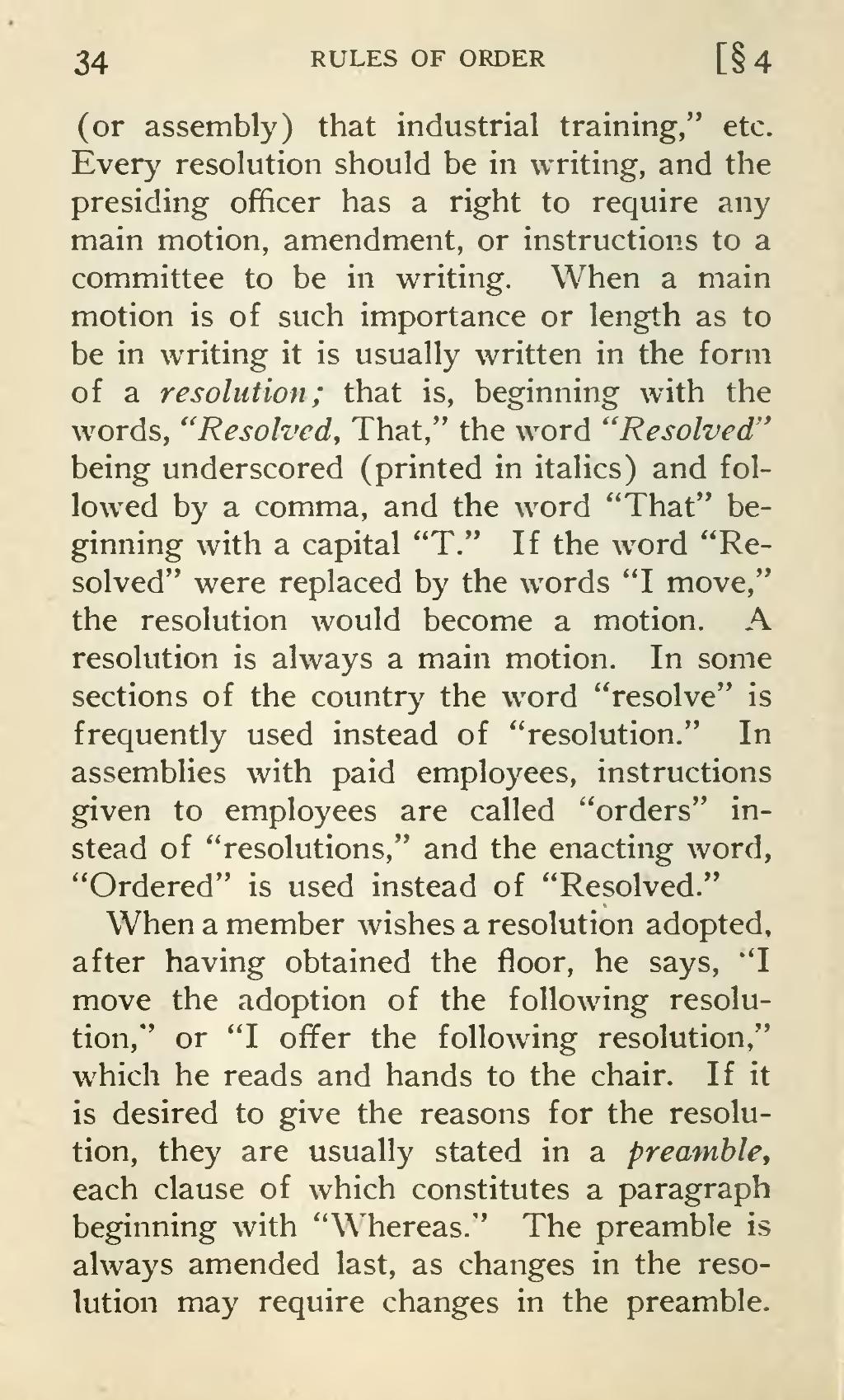(or assembly) that industrial training," etc. Every resolution should be in writing, and the presiding officer has a right to require any main motion, amendment, or instructions to a committee to be in writing. When a main motion is of such importance or length as to be in writing it is usually written in the form of a resolution; that is, beginning with the words, "Resolved, That," the word "Resolved" being underscored (printed in italics) and followed by a comma, and the word "That" beginning with a capital "T." If the word "Resolved" were replaced by the words "I move," the resolution would become a motion. A resolution is always a main motion. In some sections of the country the word "resolve" is frequently used instead of "resolution." In assemblies with paid employees, instructions given to employees are called "orders" instead of "resolutions," and the enacting word, "Ordered" is used instead of "Resolved."
When a member wishes a resolution adopted, after having obtained the floor, he says, "I move the adoption of the following resolution," or "I offer the following resolution," which he reads and hands to the chair. If it is desired to give the reasons for the resolution, they are usually stated in a preamble, each clause of which constitutes a paragraph beginning with "Whereas." The preamble is always amended last, as changes in the resolution may require changes in the preamble.
